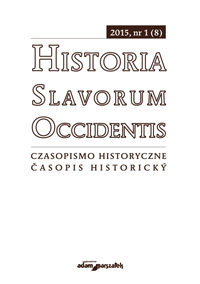Czy bez Mahometa nie byłoby Mieszka i Bolesława I?
Would Mieszko I and Bolesław the Brave have ruled if it had not been for Muhammad?
Arabic trading system and the political economy of Central and Eastern European societies in the tenth century
Author(s): Dariusz AdamczykContributor(s): Agnieszka Tokarczuk (Translator)
Subject(s): History, Comparative history, Diplomatic history, Economic history, Middle Ages, Theology and Religion, Islam studies, 6th to 12th Centuries
Published by: Wydawnictwo Adam Marszałek
Keywords: political economy of the processes of state formation;arab silver flows; Wielkopolska;Great Poland;the Czech lands;
Summary/Abstract: The economic boom, driven by the demand for slaves and furs in the countries of the Middle East and Middle Asia, the Maghreb and al-Andalus, and the resultant silver flows coming into the peripheral zone of Europe, permitted or facilitated the formation of early centres of power. In Wielkopolska, fur from tributes and people captured during raiding expeditions were traded for ores and luxury goods. These, in turn, were used to pay for the retinue (družina). Therefore, prestige and silver constituted the basis of ‘central’ power, conditioned the support for the power and thus its continued reign. The Czech lands were an important link in the transcontinental trade con-necting Khazaria and Hungary with al-Andalus. The Přemyslids’ power relied heavily on the income arising from the control over the routes passing through Prague. Nevertheless, their reign, notably Boleslav I’s, was also founded upon the organisation of slave export, a factor driving and regulating the Bohemian political economy throughout the second half of the tenth century.
Journal: Historia Slavorum Occidentis
- Issue Year: 2015
- Issue No: 1
- Page Range: 19-33
- Page Count: 17
- Language: Polish

